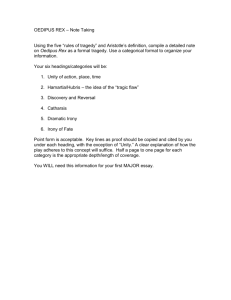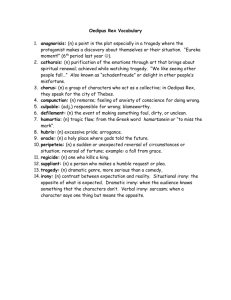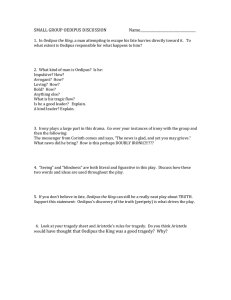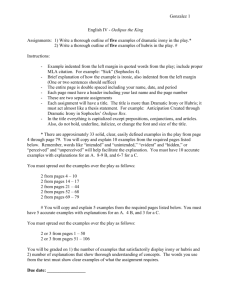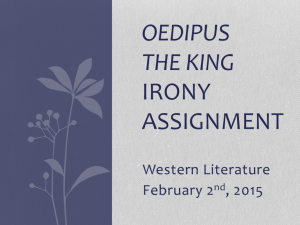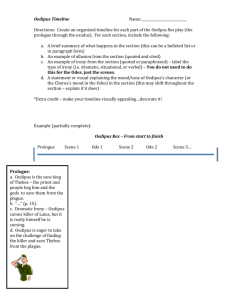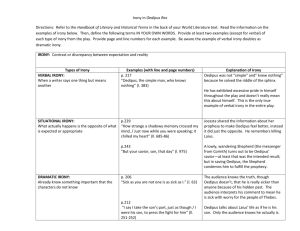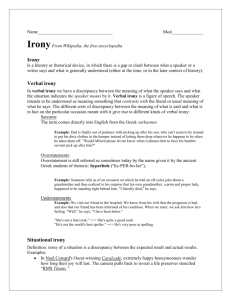irony - Intranet
advertisement
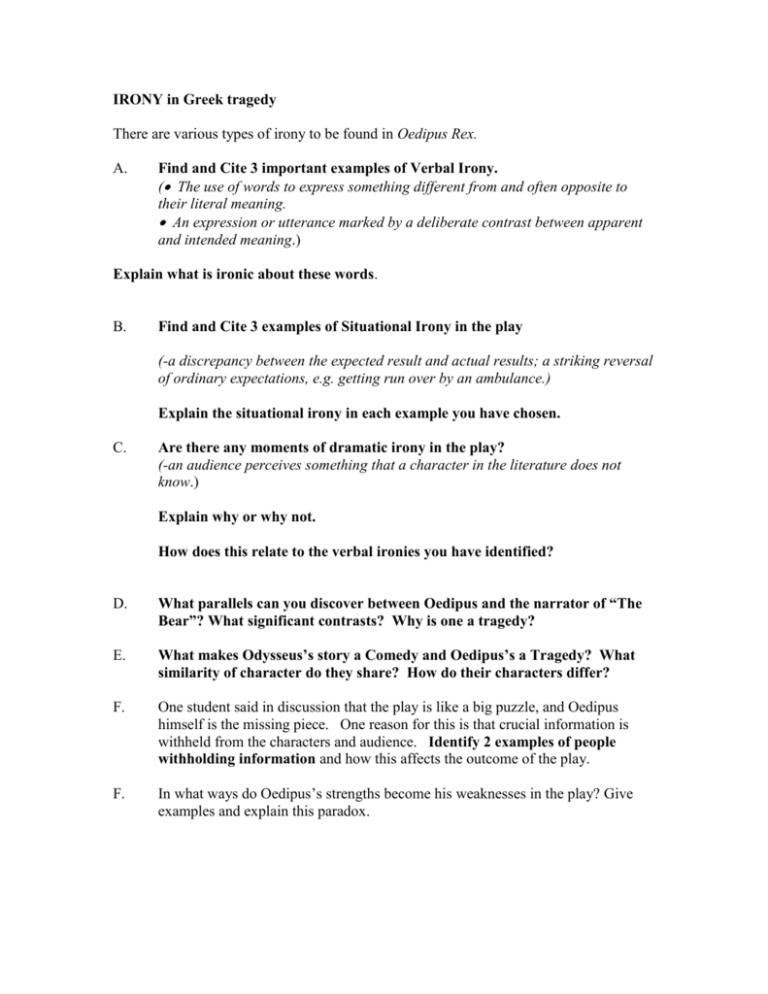
IRONY in Greek tragedy There are various types of irony to be found in Oedipus Rex. A. Find and Cite 3 important examples of Verbal Irony. ( The use of words to express something different from and often opposite to their literal meaning. An expression or utterance marked by a deliberate contrast between apparent and intended meaning.) Explain what is ironic about these words. B. Find and Cite 3 examples of Situational Irony in the play (-a discrepancy between the expected result and actual results; a striking reversal of ordinary expectations, e.g. getting run over by an ambulance.) Explain the situational irony in each example you have chosen. C. Are there any moments of dramatic irony in the play? (-an audience perceives something that a character in the literature does not know.) Explain why or why not. How does this relate to the verbal ironies you have identified? D. What parallels can you discover between Oedipus and the narrator of “The Bear”? What significant contrasts? Why is one a tragedy? E. What makes Odysseus’s story a Comedy and Oedipus’s a Tragedy? What similarity of character do they share? How do their characters differ? F. One student said in discussion that the play is like a big puzzle, and Oedipus himself is the missing piece. One reason for this is that crucial information is withheld from the characters and audience. Identify 2 examples of people withholding information and how this affects the outcome of the play. F. In what ways do Oedipus’s strengths become his weaknesses in the play? Give examples and explain this paradox.
